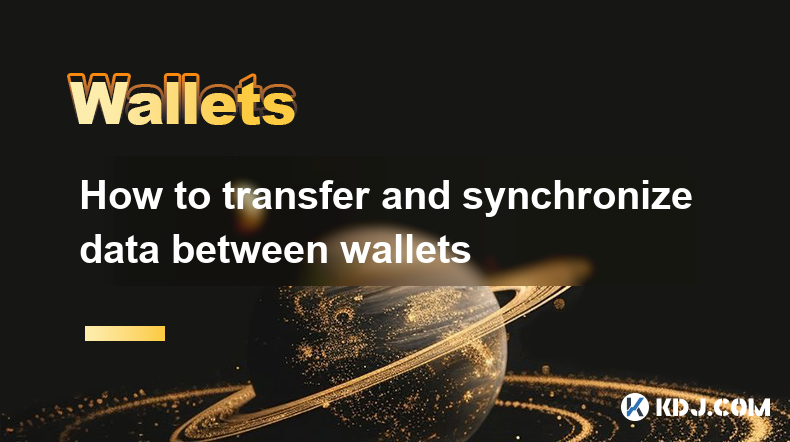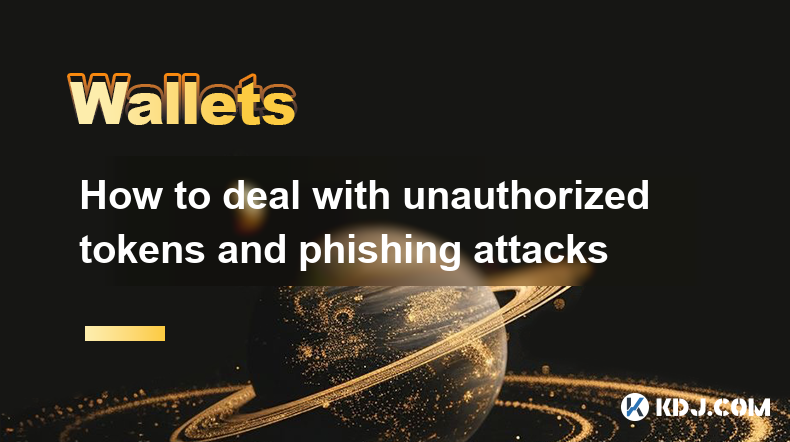-
 Bitcoin
Bitcoin $96,423.2361
-1.98% -
 Ethereum
Ethereum $2,687.4326
-2.59% -
 XRP
XRP $2.5818
-3.06% -
 Tether USDt
Tether USDt $0.9998
-0.03% -
 BNB
BNB $655.8685
0.40% -
 Solana
Solana $171.1929
-2.80% -
 USDC
USDC $1.0000
0.01% -
 Dogecoin
Dogecoin $0.2440
-3.60% -
 Cardano
Cardano $0.7663
-4.19% -
 TRON
TRON $0.2378
-4.96% -
 Chainlink
Chainlink $17.4954
-4.50% -
 Sui
Sui $3.3455
-4.52% -
 Avalanche
Avalanche $24.8717
-1.21% -
 Stellar
Stellar $0.3278
-3.39% -
 Litecoin
Litecoin $129.5275
-3.78% -
 Hedera
Hedera $0.2157
-1.77% -
 Toncoin
Toncoin $3.6223
1.02% -
 UNUS SED LEO
UNUS SED LEO $9.7265
-0.20% -
 Shiba Inu
Shiba Inu $0.0...01523
-2.39% -
 Hyperliquid
Hyperliquid $24.7464
-2.04% -
 Polkadot
Polkadot $5.0989
0.41% -
 MANTRA
MANTRA $7.5112
-1.79% -
 Bitcoin Cash
Bitcoin Cash $317.7396
-2.92% -
 Bitget Token
Bitget Token $5.0163
7.37% -
 Ethena USDe
Ethena USDe $0.9988
-0.09% -
 Dai
Dai $1.0002
0.02% -
 Uniswap
Uniswap $8.7946
-5.33% -
 Monero
Monero $232.2611
-1.64% -
 NEAR Protocol
NEAR Protocol $3.4081
-2.87% -
 Pepe
Pepe $0.0...09228
-5.30%
How to prevent private key leakage from hardware devices
To prevent private key leakage from hardware devices, implement comprehensive security measures, including strong passphrases, multi-factor authentication, and regular firmware updates.
Feb 21, 2025 at 05:07 pm

Key Points to Prevent Private Key Leakage from Hardware Devices:
- Use Strong Passphrases: Create complex and unguessable passphrases for your hardware device. Avoid using common words or sequences, and consider using a passphrase manager.
- Enable Multi-Factor Authentication: Implement additional layers of security, such as SMS or email verification, when accessing your hardware device. This prevents unauthorized individuals from accessing your private keys even if they gain possession of your device.
- Update Firmware Regularly: Regularly update the firmware on your hardware device to patch any security vulnerabilities. These updates often include critical security fixes that can mitigate potential risks of private key compromise.
- Store Backup Phrases Securely: Keep your hardware device's backup phrases safe and secure, preferably in a physical or offline form. Avoid storing backup phrases in digital formats or cloud storage, which can be susceptible to hacking.
Step-by-Step Guide:
1. Using Strong Passphrases
- Create a passphrase that is at least 24 words long.
- Use a combination of upper and lowercase letters, numbers, and special characters.
- Avoid using common phrases or sequences that are easily guessed.
- Consider using a passphrase manager to generate and store complex passphrases securely.
2. Enabling Multi-Factor Authentication
- Set up SMS or email verification for your hardware device.
- When accessing your device, you will be prompted to enter a code sent to your mobile number or email address.
- This additional layer of security ensures that only authorized individuals can access your private keys.
3. Updating Firmware Regularly
- Check for firmware updates from the manufacturer of your hardware device.
- Regularly install firmware updates to patch security vulnerabilities and improve device protection.
- Follow the instructions provided by the manufacturer for updating the firmware safely.
4. Storing Backup Phrases Securely
- Create a physical backup of your hardware device's recovery phrases.
- Write down the backup phrases on a piece of paper or metal plate and store it in a secure location, such as a safety deposit box or a hidden spot in your home.
- Avoid storing backup phrases digitally or in cloud storage, as these locations can be compromised by hackers.
5. Avoiding Physical Tampering
- Keep your hardware device physically secure.
- Avoid leaving it unattended or sharing it with others.
- Inspect your device regularly for any signs of tampering, such as scratches or dents.
- If you suspect your device has been compromised, immediately contact the manufacturer and move your assets to a new device.
6. Using Reputable Hardware Device Manufacturers
- Choose hardware devices from reputable and trusted manufacturers with a proven track record in security.
- Read reviews and conduct research before purchasing a hardware device.
- Look for devices that are certified and have passed independent security audits.
FAQs:
Q: What happens if my private key is leaked?
A: If your private key is leaked, attackers can access the cryptocurrency funds associated with it. They can transfer or spend your funds without your authorization.
Q: Can I recover my funds if my private key is stolen?
A: No. Once your private key is stolen, it cannot be recovered. It is important to secure your private keys and backup phrases carefully to prevent unauthorized access.
Q: What is the best way to store my private keys?
A: The best way to store your private keys is in a hardware device that is stored in a secure location. Avoid storing your private keys digitally or in cloud storage.
Q: Can I use a software wallet to prevent private key leakage?
A: While software wallets provide convenience, they are more susceptible to hacking and malware attacks. For maximum security, it is recommended to use a hardware device for storing your private keys.
Disclaimer:info@kdj.com
The information provided is not trading advice. kdj.com does not assume any responsibility for any investments made based on the information provided in this article. Cryptocurrencies are highly volatile and it is highly recommended that you invest with caution after thorough research!
If you believe that the content used on this website infringes your copyright, please contact us immediately (info@kdj.com) and we will delete it promptly.
- Story (IP), CLANKER, and DOGEAI Are the Top-Performing AI Coins of the Third Week of February 2025
- 2025-02-22 14:30:25
- The United States Securities and Exchange Commission (SEC) has concluded its probe into non-fungible token (NFT) marketplace OpenSea
- 2025-02-22 14:30:25
- Libra staged a hunting game: nearly 30% of large investors took over at high prices, and more than 70,000 addresses were harvested
- 2025-02-22 14:30:25
- California Recommends Steve Jobs for the $1 American Innovation Coin
- 2025-02-22 14:30:25
- Onyxcoin (XCN) May Surge 30% Before March Despite Ongoing Bearish Trend
- 2025-02-22 14:30:25
- Pi Network's Open Network Launch: A 65% Pi Coin Crash Amidst Fraud Allegations
- 2025-02-22 14:30:25
Related knowledge

What are cold storage and hot storage? Which one is safer?
Feb 22,2025 at 03:18pm
Key Points:Cold storage and hot storage are two methods of storing cryptocurrencies.Cold storage involves storing cryptocurrencies offline, while hot storage involves storing them online.Cold storage is generally considered safer than hot storage, as it is not connected to the internet and is therefore less susceptible to hacking.Cold StorageCold storag...

How to synchronize wallets in multiple devices and browsers
Feb 22,2025 at 09:18am
Key Points:Understand the different types of cryptocurrency wallets and their synchronization capabilities.Learn how to synchronize hardware wallets with multiple devices.Discover the steps involved in synchronizing software wallets across platforms.Explore the options for synchronizing mobile wallets on different devices.Gain insight into browser exten...

How to transfer and synchronize data between wallets
Feb 21,2025 at 12:25pm
Key Points:Understanding different wallet types and their capabilitiesIdentifying similarities and differences between walletsExploring options for transferring and synchronizing dataEnsuring data security and integrity during transferAddressing common challenges and troubleshooting tipsHow to Transfer and Synchronize Data Between Cryptocurrency Wallets...

Why do you need to understand Ethereum network congestion and gas fees?
Feb 21,2025 at 04:48am
Key PointsUnderstanding Ethereum Network Congestion and Gas FeesGas Fees ExplainedFactors Affecting Network CongestionStrategies for Minimizing Gas FeesImpact of Ethereum UpgradesUnderstanding Ethereum Network Congestion and Gas FeesThe Ethereum network is a decentralized platform that hosts a vast ecosystem of decentralized applications (dApps), non-fu...

How to participate in DAO voting and governance?
Feb 21,2025 at 03:42pm
Key Points:Overview of DAO Voting and GovernanceUnderstanding DAO Structures and MembershipRole of DAO Tokens and Voting RightsParticipating in Voting and Proposal SubmissionLeveraging Governance Tools and PlatformsImpact of Voting Participation on DAO OutcomesBest Practices for Effective DAO GovernanceHow to Participate in DAO Voting and Governance1. U...

How to deal with unauthorized tokens and phishing attacks
Feb 21,2025 at 05:25am
Dealing with Unauthorized Tokens and Phishing Attacks in the Cryptocurrency CircleThe cryptocurrency market is rife with potential dangers, including unauthorized tokens and phishing attacks. To protect yourself from these threats, it's crucial to take proactive measures and be vigilant in your online activities.Key Points:Unauthorized Tokens: Tokens cr...

What are cold storage and hot storage? Which one is safer?
Feb 22,2025 at 03:18pm
Key Points:Cold storage and hot storage are two methods of storing cryptocurrencies.Cold storage involves storing cryptocurrencies offline, while hot storage involves storing them online.Cold storage is generally considered safer than hot storage, as it is not connected to the internet and is therefore less susceptible to hacking.Cold StorageCold storag...

How to synchronize wallets in multiple devices and browsers
Feb 22,2025 at 09:18am
Key Points:Understand the different types of cryptocurrency wallets and their synchronization capabilities.Learn how to synchronize hardware wallets with multiple devices.Discover the steps involved in synchronizing software wallets across platforms.Explore the options for synchronizing mobile wallets on different devices.Gain insight into browser exten...

How to transfer and synchronize data between wallets
Feb 21,2025 at 12:25pm
Key Points:Understanding different wallet types and their capabilitiesIdentifying similarities and differences between walletsExploring options for transferring and synchronizing dataEnsuring data security and integrity during transferAddressing common challenges and troubleshooting tipsHow to Transfer and Synchronize Data Between Cryptocurrency Wallets...

Why do you need to understand Ethereum network congestion and gas fees?
Feb 21,2025 at 04:48am
Key PointsUnderstanding Ethereum Network Congestion and Gas FeesGas Fees ExplainedFactors Affecting Network CongestionStrategies for Minimizing Gas FeesImpact of Ethereum UpgradesUnderstanding Ethereum Network Congestion and Gas FeesThe Ethereum network is a decentralized platform that hosts a vast ecosystem of decentralized applications (dApps), non-fu...

How to participate in DAO voting and governance?
Feb 21,2025 at 03:42pm
Key Points:Overview of DAO Voting and GovernanceUnderstanding DAO Structures and MembershipRole of DAO Tokens and Voting RightsParticipating in Voting and Proposal SubmissionLeveraging Governance Tools and PlatformsImpact of Voting Participation on DAO OutcomesBest Practices for Effective DAO GovernanceHow to Participate in DAO Voting and Governance1. U...

How to deal with unauthorized tokens and phishing attacks
Feb 21,2025 at 05:25am
Dealing with Unauthorized Tokens and Phishing Attacks in the Cryptocurrency CircleThe cryptocurrency market is rife with potential dangers, including unauthorized tokens and phishing attacks. To protect yourself from these threats, it's crucial to take proactive measures and be vigilant in your online activities.Key Points:Unauthorized Tokens: Tokens cr...
See all articles














![BONK The Meme Coin MORE THAN ORDINARY [DOG] on Solana BONK The Meme Coin MORE THAN ORDINARY [DOG] on Solana](/uploads/2025/02/22/cryptocurrencies-news/videos/bonk-meme-coin-ordinary-dog-solana/image-1.jpg)


































































